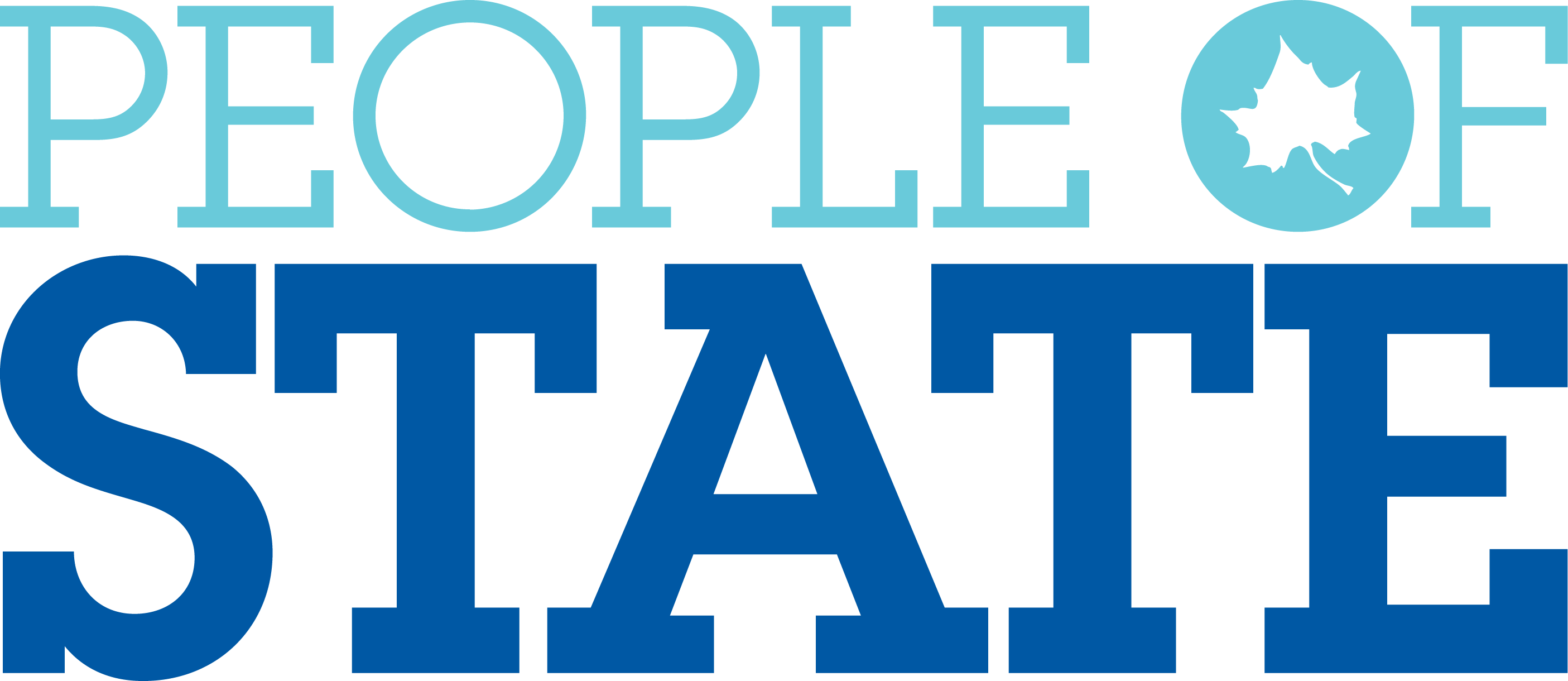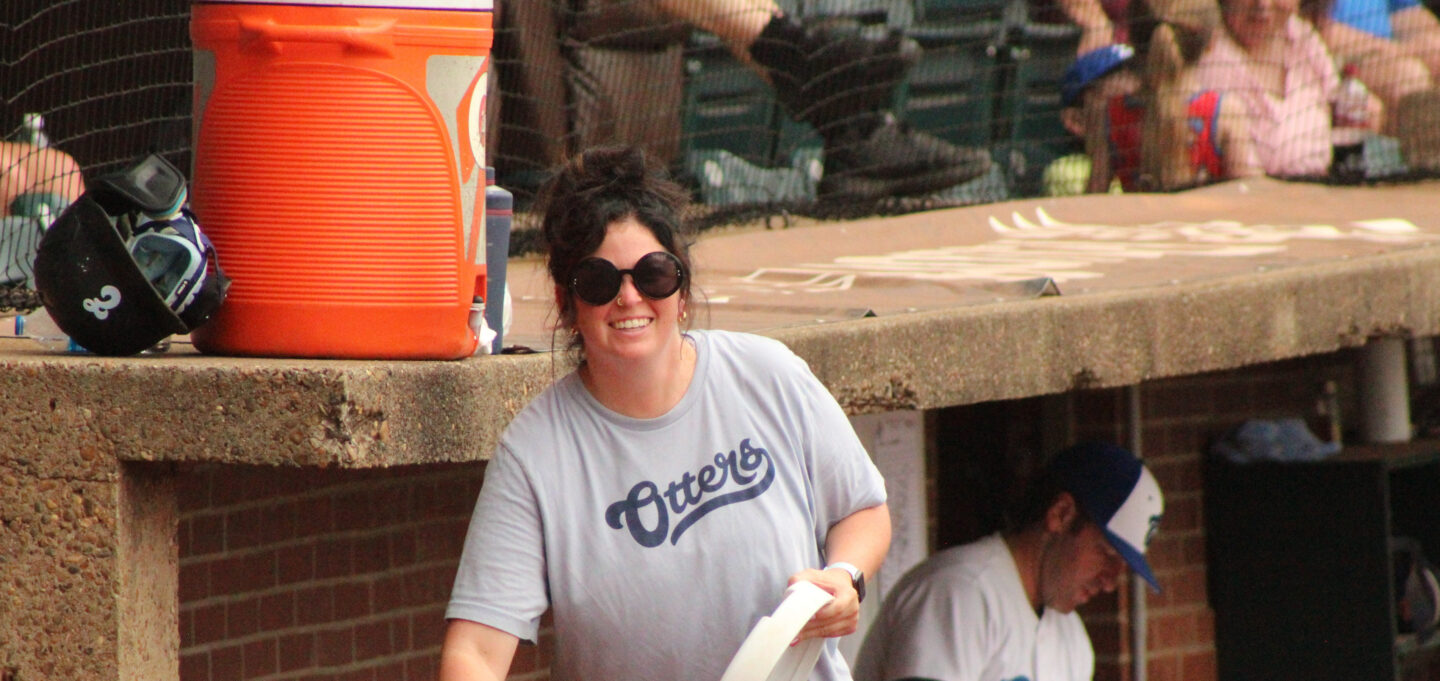
Mandy Flaig
By Kasy Long
Apr 2, 2024
Doctorate of Athletic Training Alumna
It’s the bottom of the ninth. Bases are loaded and you’re on the mound. The packed stadium crowd watches as you raise your arm to (hopefully) deliver a strike to home plate. You’ve done this ten thousand times before.
You lean back and release a 90 mph fastball. “Strike! One ball, two strikes!” The crowd roars to life. The next strike will be the game-winner.
Time for the hard slider, your winning pitch, the one that will be noticed by MLB scouts. You raise your glove, ball in hand, go into your windup, and release it. You know this is the most important pitch of your career.
Snap!
Suddenly, you’re writhing on the pitcher’s mound as intense pain rips through your arm and down your torso. It’s pain unlike anything you have ever experienced. You’ve seen this happen to other baseball players, and now it has happened to you. The stadium holds its collective breath as everyone – fans, coaches, teammates, opponents – watches you grip your arm. Medics arrive at your side, and an athletic trainer takes the first necessary steps to (hopefully) ensure your full recovery.
And this entire time, you’re thinking of that winning pitch. Your dream. You were so close.
—
Sycamore Mandy Flaig, DAT, has seen similar baseball injuries during her time in the dugout. The 2022 Doctorate in Athletic Training (DAT) alumna from Indiana State University is currently a seasonal athletic trainer for the Delmarva Shorebirds, a minor league baseball team affiliated with the Baltimore Orioles, the storied MLB franchise that clinched the American League East Division title in 2023.
“I’ve always loved baseball. I grew up a fan of the Cincinnati Reds, so it was fitting for me to pursue a career in sports,” says Dr. Flaig, who has played recreational softball. “There are different challenges in baseball. It’s the longest season of any professional sport. With an average of six games a week, more chronic injuries can happen.”
Dr. Flaig also swam for her high school’s swim team, but she was unaware of future career possibilities in athletics. Originally, she had planned to study pre-medicine, but Dr. Flaig said she “felt lost” in that program. Then, she took classes focused on athletic training and quickly fell into the profession.
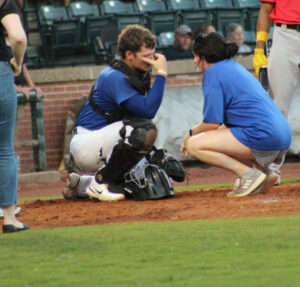
After earning a bachelor’s degree in athletic training from Georgetown College and a master’s degree in sports administration and intercollegiate athletics from Western Kentucky University, Dr. Flaig pursued her DAT degree at Indiana State. The University’s DAT program involves online coursework and periodic visits to campus for hands-on instruction and personal interaction with faculty members.
Indiana State’s program prepares students to become patient-centered, clinically expert practitioners who understand patients’ specific health and wellness needs. DAT students at Indiana State develop their skills using practice-based research and advanced research projects relevant to their specific career goals in athletic training.
For Dr. Flaig, this meant chronic strengthening, rehabilitation, and mental health in athletic sports.
“Indiana State helped me focus on treating patients. I ask myself, ‘What are the patient’s main concerns? What are their goals? What may have caused their injuries?’ Because of Indiana State’s DAT program, I’ve learned to assess the whole body and find the root cause of the injury,” she explains.
“I had the pleasure to work with Dr. Flaig as her academic and research advisor, which allowed me to watch her grow throughout her time in our DAT program,” says Matthew Rivera, PhD, assistant professor in the Department of Applied Medicine and Rehabilitation. “One of the most meaningful moments I got to experience was watching where she started [as a speaker and leader] transform to the strong clinician and healthcare provider she is today.
“I have no doubt Dr. Flaig will continue to be a strong role model living out the values of a true Sycamore alumna,” he adds.
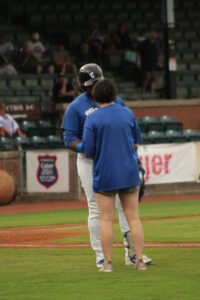
Dr. Flaig still considers her faculty at Indiana State to be her mentors and colleagues and says that many of them encouraged her to apply for her current position as a seasonal athletic trainer for the Baltimore Orioles organization. Before assuming this role, Dr. Flaig had served as an athletic trainer for the Kentucky Orthopedic Rehab Team (an outpatient physical and occupational therapy and sports medicine practice), and then as a seasonal athletic trainer for the Evansville Otters – a professional baseball team in the Frontier League, an MLB partner league. In 2022, Dr. Flaig was named the Frontier League Athletic Trainer of the Year.
“Every team is different, which offers exciting challenges and opportunities. I’ve also worked with football players, and those injuries were usually different than what I see with baseball players. But at the end of the day, our goal is to approach all injuries with the same mindset,” Dr. Flaig says.
Not every athlete makes it to the MLB right away. The Baltimore Orioles organization has seven teams under its affiliation umbrella, and these athletes play for the minor league affiliates until they are (hopefully) called up to the Orioles’ MLB roster. Dr. Flaig works with baseball players on the Delmarva Shorebirds team, a Low-A minor league affiliate to the Orioles based in Salisbury, Maryland. She helps diagnose, treat, and prevent chronic injuries common to the sport’s athletes, including shoulder and elbow injuries.
“In our profession, we’re the only healthcare providers who get to work with our patients through the entire process. We’re there when they first have their injury and then the diagnosis and treatment. We’re the first healthcare provider they see after surgery. Then, we’re there through the rehabilitation and recovery. Because we’re so involved in their journey, it’s rewarding to see them get better and return to playing as stronger athletes,” she says.
Dr. Flaig shared one story of a baseball player who suffered from constant shoulder pain. Though the symptoms were frequently dismissed by other healthcare professionals, Dr. Flaig advocated for her patient. When the athlete’s arm took on a purple appearance, Dr. Flaig ordered an MRI that showed the athlete had an extra rib cutting off circulation to his arm.
“It was challenging to get him diagnosed, but you have to work around problems to find solutions. It was rewarding to see his motivation and that he didn’t give up,” she says.
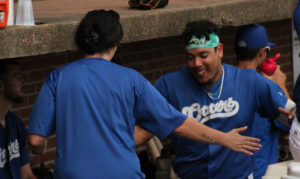
Dr. Flaig’s professional career as an athletic trainer has only just begun. Similar to minor league athletes who are waiting for their big chance in the Show, Dr. Flaig hopes to be promoted to the primary athletic training staff for the Orioles. Her passion lies in baseball – because there is no greater feeling than watching a baseball game in the summer, eating a box of Cracker Jack, and rooting for your home team.
As for Dr. Flaig, she’s rooting for her athletes to stay healthy so they can celebrate victories and not have to wonder about what might have been.

